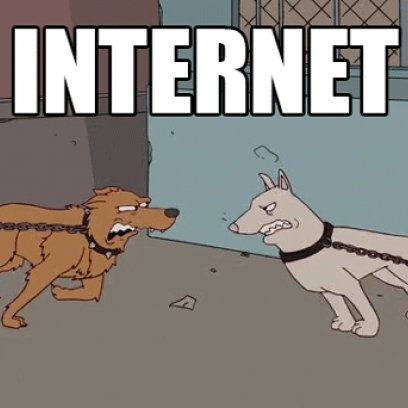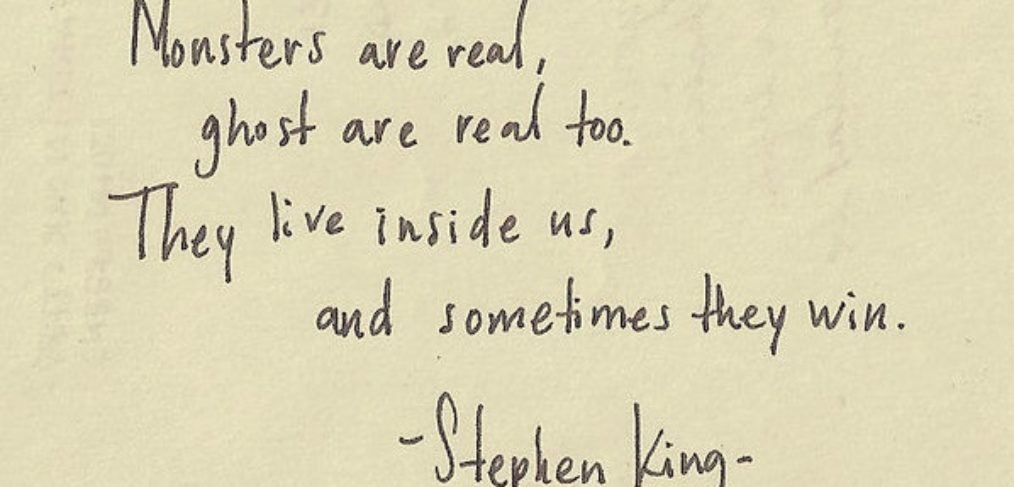
‘We need to establish some rules for global communication and activism.’
As citizens, so much of our political conversation – perhaps the majority of it – happens on social media these days. If social media really is the awakening of a global consciousness – us all becoming one gigantic brain – then it is little wonder that this birth of a 7 billion-part “us” is, sometimes, terrifying. Like some bewildered Frankenstein’s monster, waking up on the slab and lashing out, not knowing the power of its new arms and legs.
In order that this fabulous, awe-inspiring beast do no harm, we need to establish some rules for global communication and activism, so that the same mistakes are not made over and over again.
1 Your tone is key
I’ve sat through 10 years of online debates, and the one thing I can tell you as a fact is that, if you communicate in anger, 90% of the response you will get in return will be just… more anger. Directed at you. It doesn’t matter if what you are saying is true, factual or reasonable, because the majority of people will not be reading what you actually said. They’re just going to see the emotional pitch of your communique and reply in kind, instead.
I’ve seen so many potentially amazing debates go nowhere, because the person starting the debate was rightfully angry, but their tone seemingly worked as a dog whistle to attract a massive online fight. There were a couple of years when online feminism was basically a bunch of hurt, angry women – women who should have been on the same side – communicating with each other only in fury, and creating only fury in return. Every brilliant, bright, right thing they said was ignored.
If you are to be an effective radical, you must be a polite radical, which is, of course, the best kind of radical. And if you can be gently humorous, you are doing the whole world a favour. Nothing unclenches the angrily clamped-together buttocks of social media in the middle of an outrage firestorm more than someone essentially taking on the posture of The Fonz and going, “Heyyyyy – wassup?”
2 Don’t dismiss people who aren’t perfect
Social media has a current, unpleasant hobby: waiting for someone to come along who appears to have captured a mood, or identified a problem, or done something laudable, or progressive – then frantically digging in their past to find a mistake they might previously have made, in order to totally devalue the good thing they have just done.
I understand where this desire comes from: it’s a fear of being let down. We’ve been let down by a million heroes, at some point – and so, now, in order not to look like fresh-off-the-train rubes, we race to be the first person to unmask this new messiah, before we are, inevitably, disappointed by them, at some point in the future. There is a virtual industry, at the moment, in people mining the pasts of the newly prominent to find an ill-advised tweet from 2007, a Facebook update where they used a “bad” phrase or an early standup skit where they appeared to say something bad about, say, Mexicans –
But part of being a grownup is always to have the guts to believe. Cynicism is like an armour – it will, initially, protect you. But you cannot grow in armour, you cannot dance in armour. Cynicism is, in the end, an act of weakness. We must always have the cojones to be optimistic. To trust people. To forgive them their mistakes, if we feel that they are trying to be better people; that they are trying to learn.
3 Don’t get in the way
You know how it goes. Some people are discussing something – posting links, proffering ideas – and then some third party will rock up and say (often smugly, I regret to say) “What about blah?” – mentioning some completely tangential but controversial side issue that invariably attracts a whole host of controversy-hungry arguers who will then pile into the conversation, arguing among themselves.
The original posters spend an hour or two fending off the increasingly hysterical whirlpool of demands being thrown at them, before finally logging off, exhausted, and leaving the original debate to die.
The kind of people who parachute into other people’s debates want, essentially, attention. They are acting as if the only way to draw attention to the causes they are passionate about is to piggyback them on to the cause you are being passionate about.
Even if we look at the most inspiring and astonishing people ever to come along – Gandhi, Mandela, Sir Alex Ferguson – they didn’t do everything. They had a couple of areas in which they were incredibly visionary, powerful and determined – decolonisation of India, the end of apartheid, winning the treble – but they weren’t also tackling FGM, climate change, sex-trafficking and the World Cup. They specialized.
The future is a communal effort, like a patchwork quilt. Everyone interested in forming our society takes a square each – a square they have chosen according to their interests, knowledge and ability – and sews it, then we join them together to make a fabulous quilt. That’s how things get done.
When you get accosted by someone going, “You cannot talk about BLAH unless you also talk about BLAH”, the best response is, “I know – you do BLAH and I’ll do BLAH, and then the world will be twice as improved! Thanks for volunteering! You’re a total mensch. On behalf of the rest of the world – thank you!”
4 Don’t dismiss people as ‘champagne socialists’
The demented logic seems to be as follows: that you cannot stand up for the poor unless you are poor yourself. That if you have managed to accrue any wealth and security, unless you have subsequently given away every penny of it to charities for the poor, you are a hypocrite to speak about the poor. Only the poor can speak about, and for, the poor. So, if you are a real socialist, you must yourself stay poor for ever.
Of course, there are several, very obvious, logical flaws in this argument. The first is a fundamental misunderstanding of socialism.
There are many misunderstandings about what a socialist is: primarily that it’s someone who wears a donkey jacket and lives by a brazier, possibly in 1979, and listens only to Billy Bragg. Well, I know loads of socialists like this, and they’re ace. They get shit done. But that’s not socialism. That’s people. People who like old coats and Billy Bragg.
Socialism is just a single, simple sentence: the belief that the necessities for the functioning of a society should be provided without profit. So that’s health, education, welfare, transport, the emergency services, the prison service and the justice system, paid for by taxation, and available to everyone, regardless of wealth. No paying Serco millions for running overcrowded jails. No G4S – the guys who f…d up the Olympics – still being paid by the government, despite being investigated by the serious fraud office for massively overcharging.
5 Don’t dismiss people for voting for the party you don’t like.
It’s taken me a long time to come to this realisation. When I was nine, my father gave me a brief, concise lecture on politics: “If you ever come home and tell me you voted Tory,” he said, lying on the driveway, dragging on a ciggy as he dropped the clutch out of the car, “you’ll be sailing out of the front door with my boot print on your arse. In this house, we vote Labour.”
As someone raised in what was, essentially, a hovel, by a miner and a munitions worker, in an era before the welfare state – “I’ve seen rats so big you could ride them like a horse” – he’d become a trade union rep by the age of 24, disabled by 30 and was fairly blunt about bringing up eight children on disability benefit in the age of Margaret Thatcher. “They’re all c…..,” he explained, over breakfast.
“Kids, put your fingers in your ears,” Mum said.
“Total c….,” he continued. “Thatcher would take the bread out of your hands if she could.”
Richie, then four, pushed his entire slice of toast into his mouth.
“Don’t think it’s safe in your mouth, kidder,” Dad said, sprinkling pickle vinegar on his fried egg. “She’ll send the f…. police round, they’ll push you over, say it was an accident, take it out of your gob and wave your f……breakfast around like it’s a scalp. Vote Labour,” he concluded.
Very, very often, he would conclude a speech with “Vote Labour”.
So imagine my surprise when, as a teenager, I went out into the world and met people who voted Conservative, and found out a lot of them were… lovely. Just lovely. Kind, considerate, intelligent people. Jewish intellectuals; immigrants who ran businesses; boyfriends of friends who sat up all night drinking gin and talking about their favourite psych records, until their friends cornered me in the toilet and said, “You’d never guess he was a Tory, would you?” in disbelieving tones.
- Stop shaming idealism
Many, many times in my life I have not said/tweeted/written what I really believe, politically, because I was worried about being shamed as “an idealist”. This is not something I am proud of, but it’s something I have done out of expediency, because I have seen, a million times, how saying something idealistic is used to attack your fundamental standing, credibility and status. Stupid. Unfit to engage in the topic.
But the ultimate pragmatism is quietly to note that idealism has won, time after time, in the last 100 years. Idealism has the upper hand. Idealism has some hot statistics. Idealism invented and fuelled the civil rights movement, votes for women, the change in rape laws, equal marriage, the internet, IVF, organ transplants, the end of apartheid, independence in India, the Hadron Collider, Hairspray the musical. Every reality we have now started with the seed of idealism, and impossibility; visions have to coalesce somewhere.
If we are too afraid to state our dreams – even to begin to sketch out possible futures – then we have begun to disinvent the greatest facility humans have: to invent better.
7 Don’t dismiss an entire idea because some people took advantage of it
The thing is, if we talked about abolishing everything that was abused, then where would we stop? We would have abolished the Houses of Parliament during the expenses scandal and the Catholic church when the paedophile priests story broke. Likewise schools, given the amount of abuse that has happened there, both state and private. We’d be talking about abolishing marriage, because women are abused, and raped, in relationships. Likewise parenthood, given the numbers of parents who abuse their children.
The simple truth is, people will abuse any system. There’s a proportion of humanity that will always play the system, whatever it is. That’s what humans do. We’re just monkeys, looking for a stick to poke in a hole to get ants. Or monkeys who will steal someone else’s stick, and ants.
The question is: is the fundamental concept that is being abused good? Right? Moral?
You don’t just give in when people abuse a system. Instead, you make the system better. Anyone wanting to give up a perfectly decent idea – indeed, a necessary, moral and transformative one – because someone else took advantage of it is basically saying, “I am too lazy to do all the admin to improve this.
So there we go. A brief guide to making sure you are a fully clued-up internet political ninja, helping shape the ideas, and tone, of your society; working as a conduit for good ideas, and not perverting them, or getting in their way. Educating yourself into one of the most glorious things on earth : an informed and motivated voter.
This is an extract from Moranifesto, by Caitlin Moran. Edited (expletives removed ) by Delaine Weerakkody
 Many years ago, during the last century, when I was a child going to school, our teachers used to ask us what we would like to be when we grew up. Most of the students in my class would blurt out “Doctor”, “Engineer” , “Lawyer” in an attempt to impress our teachers regarding their supposed ambition and to show their knowledge about many professions that are out there… which appeared as if it is kept on a super market shelf, just waiting to be picked. I was a student who was quietly pondering about my future and asking myself the question, “Now what exactly do I want to be, and what can I be when I grow up?” None of the teachers to my recollection gave us career guidance or counseling of any sort. They responded with either a “Good” or a “Great” just to encourage us but never showed us how to find our life’s purpose. No one spoke of multiple intelligence theory… well this was in 1970’s but yet surely someone should have told us that the chances of becoming a medical doctor is kind of bleak (currently in Sri Lanka there is only one Doctor for 1187 persons)
Many years ago, during the last century, when I was a child going to school, our teachers used to ask us what we would like to be when we grew up. Most of the students in my class would blurt out “Doctor”, “Engineer” , “Lawyer” in an attempt to impress our teachers regarding their supposed ambition and to show their knowledge about many professions that are out there… which appeared as if it is kept on a super market shelf, just waiting to be picked. I was a student who was quietly pondering about my future and asking myself the question, “Now what exactly do I want to be, and what can I be when I grow up?” None of the teachers to my recollection gave us career guidance or counseling of any sort. They responded with either a “Good” or a “Great” just to encourage us but never showed us how to find our life’s purpose. No one spoke of multiple intelligence theory… well this was in 1970’s but yet surely someone should have told us that the chances of becoming a medical doctor is kind of bleak (currently in Sri Lanka there is only one Doctor for 1187 persons)






